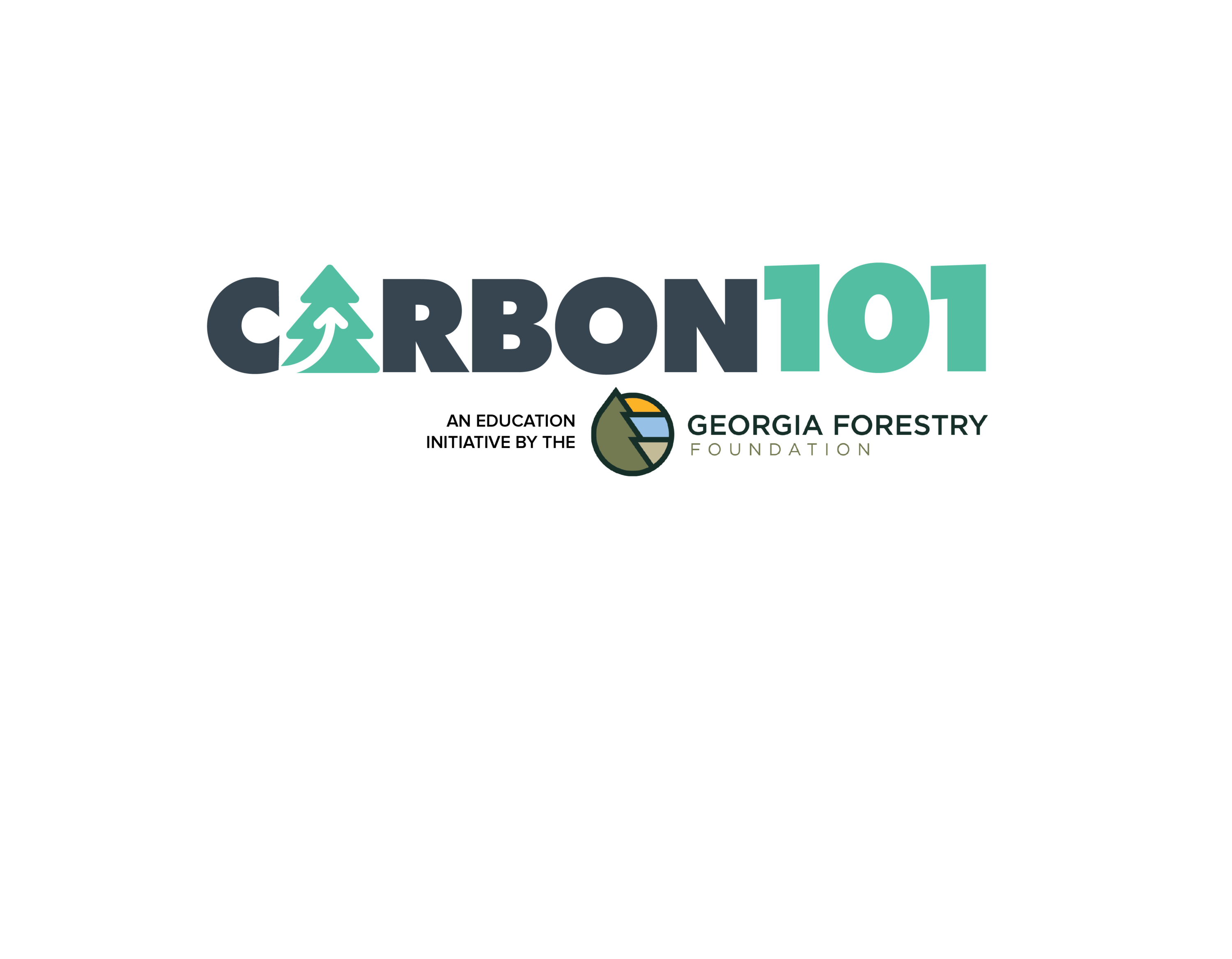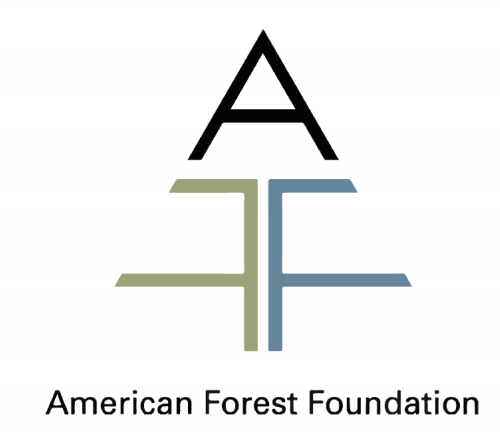The Carbon101 educational initiative was developed for GFA members by the Georgia Forestry Foundation and serves as a repository of trusted information for landowners and GFA members about carbon markets. In producing this content, we have worked with several carbon marketplace experts to gather information and develop video content.
The tabs below will guide you through the core functions of the forest carbon market in the United States. You must be a GFA member to view this content. If you are not a member and would like to learn more, please contact Nick Diluzio (nick@gffgrow.org)
The Companies and Organizations You Need to Know
Carbon Developers Overview
An Important Note about Carbon Developers: Based on the way third party verification standard rules are currently written, if a landowner enrolls their land in a carbon program, they cannot participate in a different carbon program in the future, even if their agreement/contract has expired.
Carbon Developers are independent organizations who work with landowners to develop qualified projects. Developers assess the amount of carbon that your property can offset, help with the construction and monitoring of a project, and market/sell the offset as credits on the carbon exchange market.
The chart below gives you a high-level view of the differences between each program and how it impacts your land.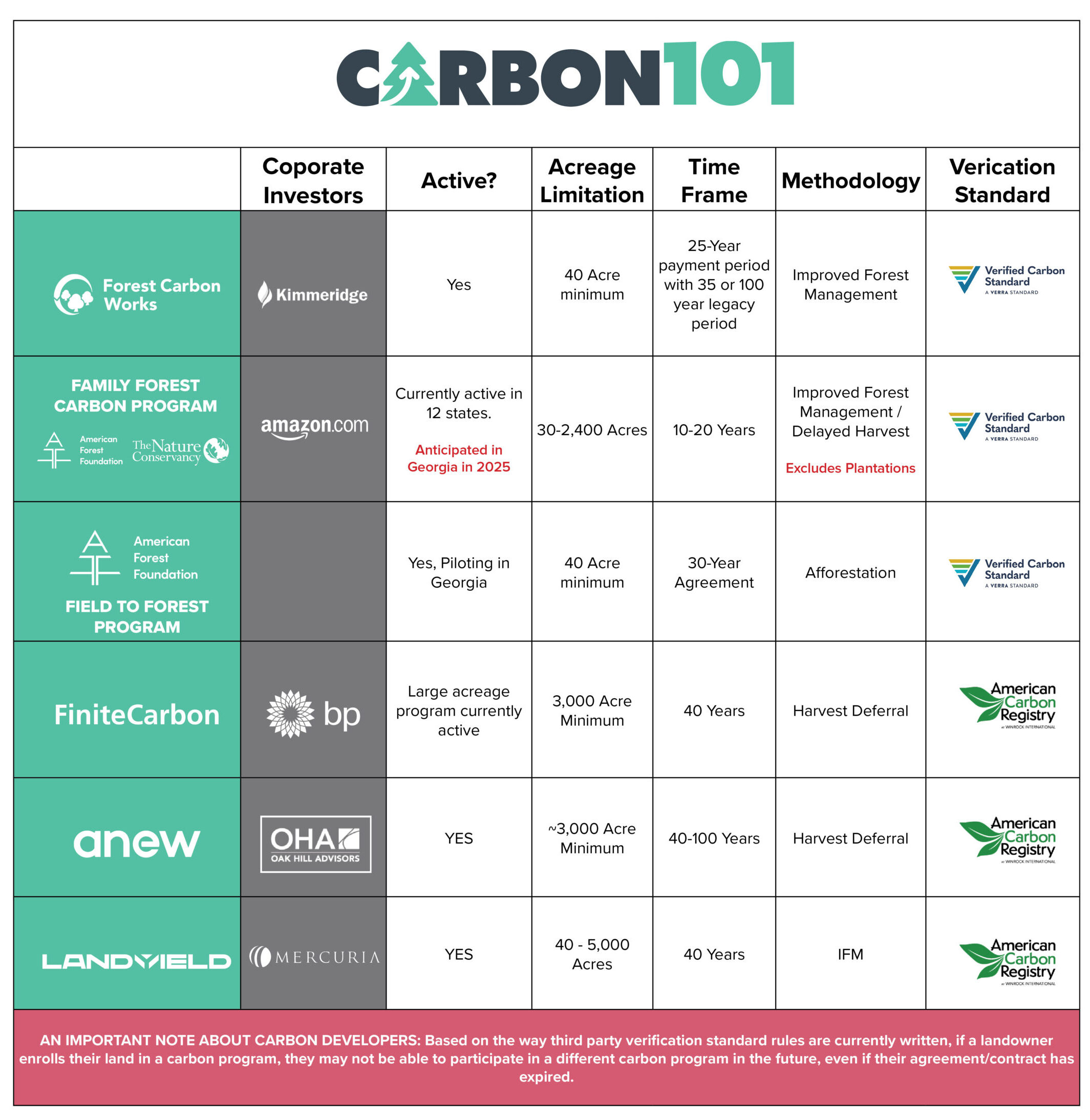
Carbon projects must be verified by a third party: Verification/Audit Providers review on-the-ground inventories, baseline models, and project documentation that the landowner and developer have created.
- Verification providers must be accredited by the carbon standard program that the landowner decides to use.
- Most carbon standards have a list of approved validators, however, if the landowner is working with a carbon developer, they will generally handle the validation process on behalf of the landowner.
Digging Deeper
Let’s take a look at each Carbon Developer and hear directly from experts about the benefits of their program.
➡️ Minimum acreage to enroll is 40 acres
➡️ Landowners receive a minimum of $10/acre/year and 25% revenue sharing.
➡️ Customized offers for landowners over 2,000 acres.
➡️ Value can be higher depending on stocking
➡️ Contracts have a 25-year payment period with either 35 or 100-year legacy periods
➡️ Harvesting is allowed for forest health concerns within 25-year payment period
➡️ Any harvests must be approved and follow an FSC-approved management plan
For More Infomation
www.forestcarbonworks.org
![]()
➡️ Allows landowners with as little as 40 acres to participate
➡️ Emphasizes long-term sustainable management
➡️ Does not allow harvests for the first 20 years; allows limited harvesting for years 21-40
➡️ Manages all phases in-house and takes on the issuance risk for a share of project returns
➡️ One of the largest carbon developers in North America
➡️ Landyield utilizes remote sensing in its program methodologies.
For More Infomation
www.landyield.com
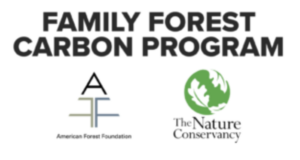
➡️ Offers payments to landowners ranging from 30 – 2400 acres
➡️ Collects only basic information to determine eligibility and pay rate, paying for completing practices instead of individual carbon credits
➡️ There are two programs that either pay landowners to manage invasive species or defer harvest
➡️ The invasive species program is not out yet
For More Infomation
www.familyfforrestcarbon.org
➡️ Minimum acreage to enroll is 40 plantable acres
➡️ Land must not have been forested for at least 10 years
➡️ Site prep, seedlings, and plantings costs are covered by the program
➡️ Landowner receives an annual payment of $30 per acre planted
➡️ Landowner can thin and harvest; landowner keeps that revenue
➡️ Currently enrolling Landowners
➡️ Email fieldtoforest@forestfoundation.org for more information
For More Infomation
Field to Forest Program

➡️ Currently manages North America’s largest carbon offset portfolio
➡️ Emphasizes providing clients turn-key forest carbon projects
➡️ Operates in both the compliance and voluntary marketplaces
➡️ Requires minimum ~ 3,000 acres
➡️ Partners with The Nature Conservancy through the Working Woodlands program
For More Infomation
www.anewclimate.com
Carbon Registries
You can see in the chart above that each carbon developer has selected a carbon registry in which to base their methodology and certify their program. Carbon registries serve as a mechanism to effectively monitor carbon offset projects and are responsible for issuing the offset credits for verified or certified emission reductions or removals.
- These registries verify individual carbon projects against their established standards, as well as track the issuance, transfer, or retirement of offset carbon credits. One of the key functions of these these registries is to protect against a particular project “double dipping” and having carbon offsets accounted for more than once.
- These registries are invaluable in maintaining a carbon marketplace that is credible and free from loopholes or illegitimate projects.
An Important Note about Carbon Registries
It’s important to note that while many different carbon registries have been developed over the years, each of these must include the following:
- Public information to identify unique projects
- Specifically allocated serial number
- Easily accessible credit status (active, retired, etc.)
- Original owner of offset credits
- Entity responsible for risk in case of project failure

Verra
Established in 2014, Verra operates within international compliance and voluntary marketplaces. VCS programs are able to be linked to Climate, Community, and Biodiversity standards as a co-benefit program.
Recognizes Afforestation/Reforestation, Improved Forest Management, and a number of other project types for use in carbon offset projects.
verra.org
Recognizes Afforestation/Reforestation, Improved Forest Management, and a number of other project types for use in carbon offset projects.
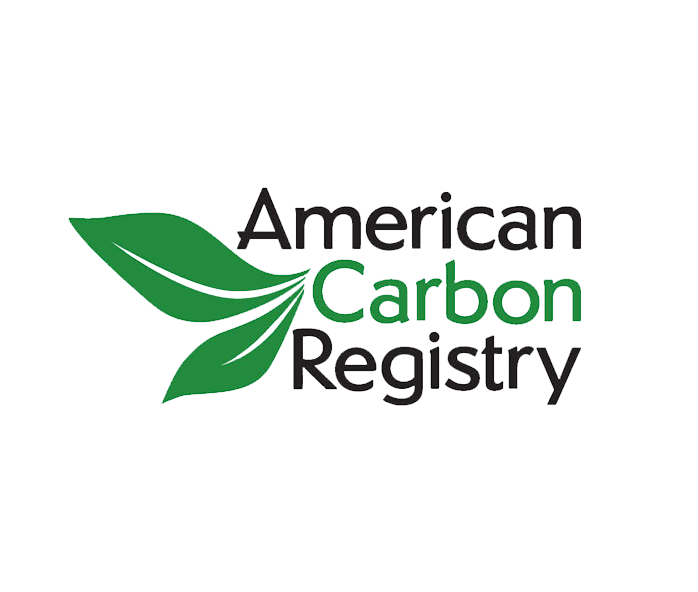
American Carbon Registry
ACR was the first private voluntary Greenhouse Gas Registry in the United States. It operates globally within both the compliance and voluntary marketplaces. Recognizes Afforestation/Reforestation, Improved Forest Management, and several other project types.
americancarbonregistry.org

Climate Action Reserve
Climate Action Reserve (CAR) operates within both the compliance and voluntary markets. Recognizes improved forest management and avoided conversion project types. Requires monitoring and verification for 100 years after the issuance of any credits for GHG reductions.
climateactionreserve.org
SECTION 4: PROCESS
You know all about the forest carbon market and the players involved. Now, let's pull the curtain back a bit to look at the process for entering a carbon project.
Feasibility
Listing
Validation & Registration
Implementation
Take a Dive
FOREST CARBON NEWS
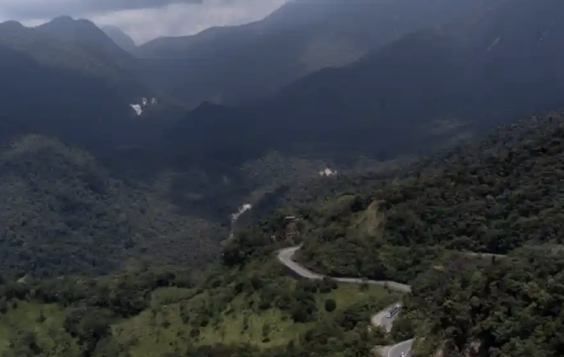

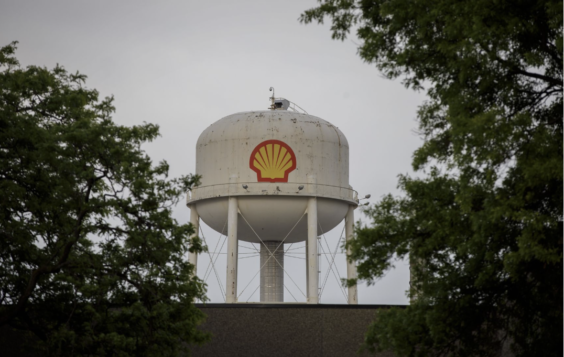
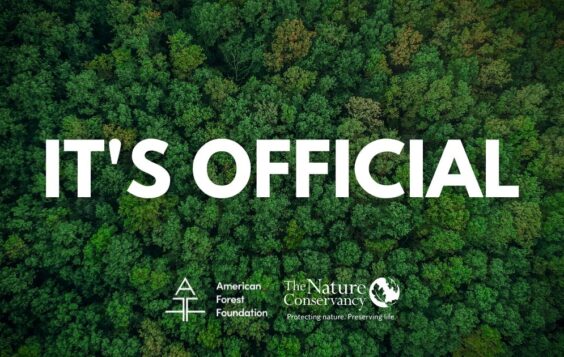
Questions? Drop Us a Line!
We are here to support you in your forest carbon journey.
Call our office today at 478-992-8110 or contact Nick directly.



